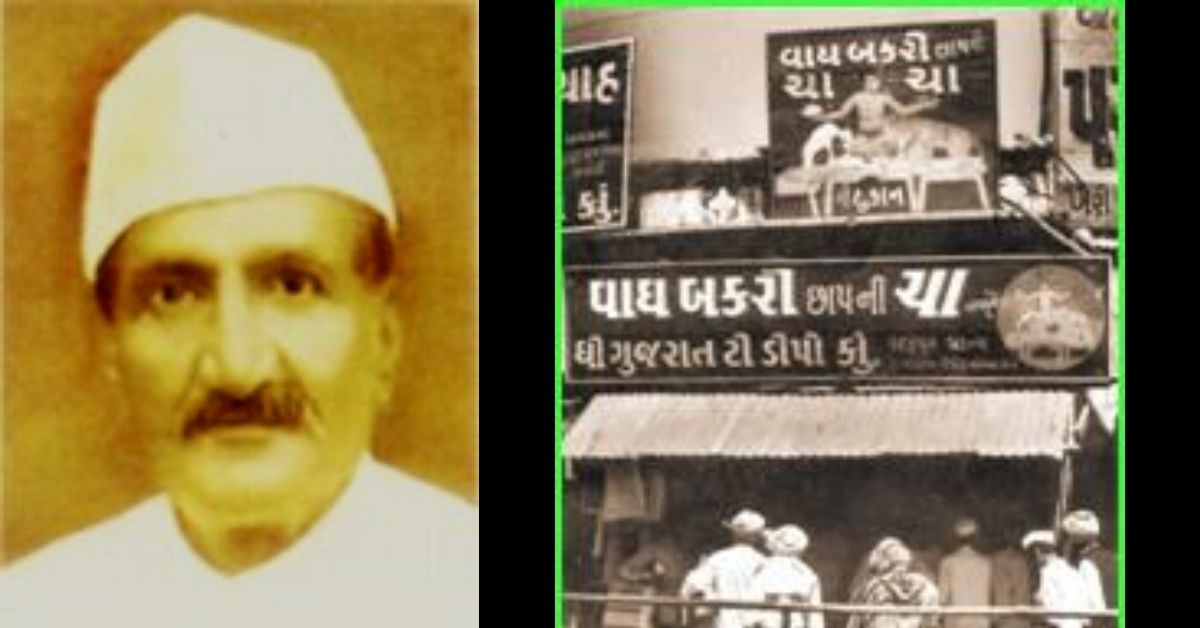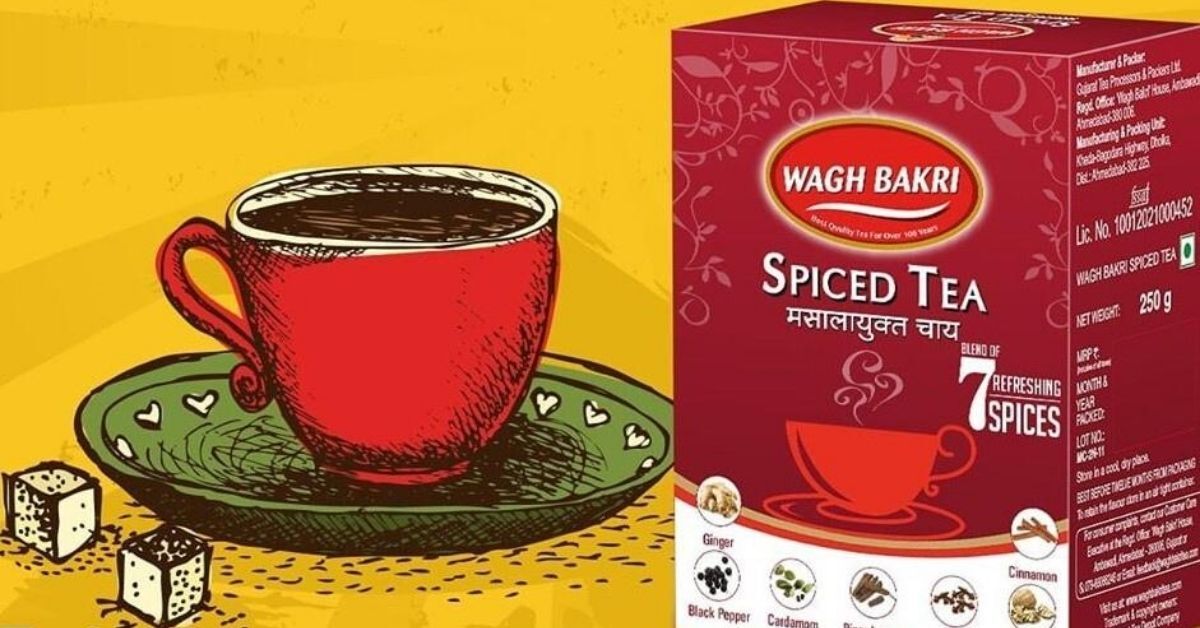Cutting Chai, Masala Chai, Kahwa, Lal Cha, and many, many more — in India, chai, or tea, is not just a beverage, it is an emotion. From the soul-awakening sip in the morning to the energising dose at sunset, it plays a very strong role in defining our daily lives.
And that is because, unlike other energy drinks or beverages, tea does not go solo. It is always accompanied either with a plate of biscuits and snacks, leisurely conversations or heated arguments. That is exactly why, the word adda, meaning conversations, is now an intrinsic part of the tea drinking experience. The proof of this phenomenon can be found in any part of the country, almost at every corner.
In a country that is a boiling pot of identities and ideologies, all diversities and differences seem to fade over a humble cup of tea — an idea that gave birth to Wagh Bakri Tea, one of India’s most iconic tea brands.
Fighting Differences For Over a Century

Started by an Indian entrepreneur, Narandas Desai, Wagh Bakri Tea has a long history of fighting against social injustice.
It all started in 1892, when Desai set up his tea business with 500 acres of tea estate in Durban, South Africa. At the time, like India, South Africa was also reeling under colonial rule, and like many before him, Desai also had to face several instances of racial discrimination. His rising success was met with more racism and the political unrest in the area eventually forced him to leave the country. With just a few valuables and a priceless certificate of recommendation from his idol, Mahatma Gandhi, he returned to India in 1915, to start from scratch.
The certificate given to him on 12 February, 1915, stated, “I knew Mr Narandas Desai in South Africa, where he was for a number of years a successful tea planter” was a token of help to ease his migration back home.
With Gandhi’s support he established the Gujarat Tea Depot in Ahmedabad in 1919.
But Gandhi’s influence on Desai was more than just running a swadeshi company, it was to start a positive movement that went on to contribute to the correlation of tea and social harmony. The message of equality was then depicted through the iconic Wagh Bakri logo. Depicting an image of a wagh or tiger drinking tea with a bakri or goat in the same cup, the company through their new logo fought against caste-based discriminination in India and promoted equality among all. With this logo, Gujarat Tea Depot launched the Wagh Bakri Tea brand in 1934.
Till 1980, the company continued to sell loose tea in both wholesale and retail outlets. But to survive and stand apart from similar businesses at the time, the board decided to revamp the venture and explore distribution of packaged tea, under the new name Gujarat Tea Processors and Packers Ltd.
In the next few years with more success across Gujarat, the company began to expand across the country. Between 2003 to 2009, the brand expanded to several states like Maharashtra, Rajasthan, UP, etc.
“Few years ago, the brand name Wagh Bakri was facing difficulty in being understood by consumers from other regions of India. However, the concept and the logo generated enormous curiosity while aroma and taste proved a backbone for the success of our brand,” says Parag Desai, Executive Director of Wagh Bakri Tea Group, and fourth generation entrepreneur, in a TOI report.
In the more recent past, the company continued to be firm on its message of equality when the CEO in 2002, Piyush Desai, mentioned that the company would not have been possible without the help of a Muslim well-wisher who helped his grandfather with a large loan. “However can we repay such a debt?” he said at the time, as mentioned in a book, The Clash Within: Democracy, Religious Violence, and India’s Future by Martha Nussbaum.
The brand’s pivotal role in the area of social justice and the importance of meaningful marketing inspired by Gandhi, was recognised by American marketing pundit, Philip Kotler in the 14th edition of his book, Marketing Management in 2013. Alongside other Indian brands like Amul and Moov, Kotler highlighted Wagh Bakri as a case study for meaningful marketing evolution.
Today, this brand has become one of the leading tea brands in India with turnover of over Rs 1,500 crore and distribution of over 40 million kg. From Rajasthan, Goa to Karnataka, all across India, Wagh Bakri has become a household name.
Featured image source: Wagh Bakri/Facebook
(Edited by Gayatri Mishra)
If you found our stories insightful, informative, or even just enjoyable, we invite you to consider making a voluntary payment to support the work we do at The Better India. Your contribution helps us continue producing quality content that educates, inspires, and drives positive change.
Choose one of the payment options below for your contribution-
By paying for the stories you value, you directly contribute to sustaining our efforts focused on making a difference in the world. Together, let's ensure that impactful stories continue to be told and shared, enriching lives and communities alike.
Thank you for your support. Here are some frequently asked questions you might find helpful to know why you are contributing?

